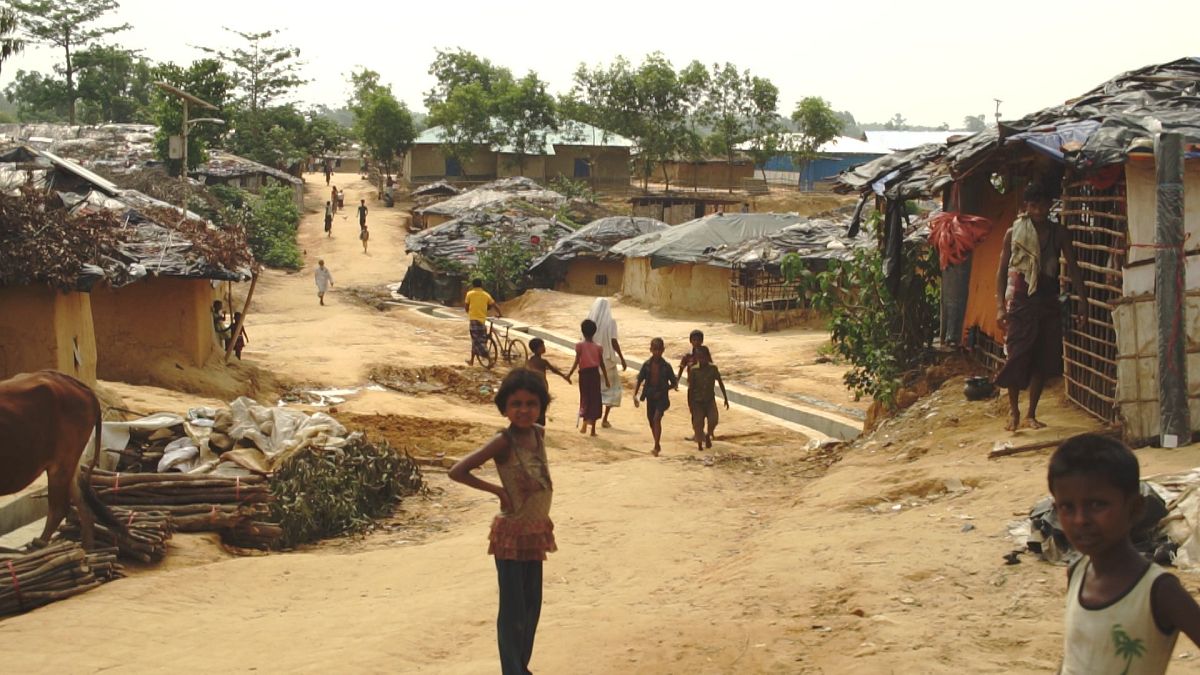Poverty stricken Bangladesh is struggling to cope with its latest large wave of displaced Rohingya Muslims. Around 74,000 have entered the country since October after fleeing alleged human rights abuses by security forces in Myanmar.
This week the UN launched a mission to investigate the suspected killings, torture and rape of Rohingya in Northern Rakhine state.
Rahmot Ullah, an unregistered refugee says he witnessed such violence.
“While I was running away, the old people who couldn’t move were slaughtered. I saw girls and mothers raped in front of me”.
Rahmot told us that after the soldiers attacked his village in Northern Rakhine, 22 people were killed, only 8 survived. He showed us how soldiers asked villagers to line up in order to beat them.
Zannat is only fifteen. She is also an unregistered refugee and says she was raped in a sporadic episode of violence before October but fled to Bangladesh after the latest crackdown by Myanmar’s military.
“In my country I’ve seen soldiers gathering Rohingya people, they beat them, I saw some women tortured, they take women’s clothes away, they make them lie on the floor and they cut their breasts and torture them,” Zannat said.
Those now arriving in Bangladesh are denied refugee status, unlike previous waves of Rohingya which fled Myanmar.u in the late 1970s and early 1990s.
Today they are labelled ‘‘Undocumented Myanmar Nationals’‘, a status which comes with very limited rights.
Karim Elguindi from the World Food Programme said: “For up to 20 years most humanitarian assistance has been for registered refugees Since last year more than 75,000 came in addition to other tens of thousands unregistered refugees, they were not having much. The aim is to provide something more dignified and a user harmonised approach, similar to what we have in registered camps.”
Bangladesh lets Rohingya stay, but only “temporarily”. In Myanmar, their situation is no better and in some cases worse.
‘‘Myanmar is right next to us, you can see it, over there on the other side of the Naf River. In Myanmar the Rohingya have been deprived of their citizenship since 1982, they have limited access to education and cannot vote,’‘ Euronews correspondent Monica Pinna said.
According to the UN, the alleged human rights abuses by Myanmar’s military may amount to crimes against humanity.
